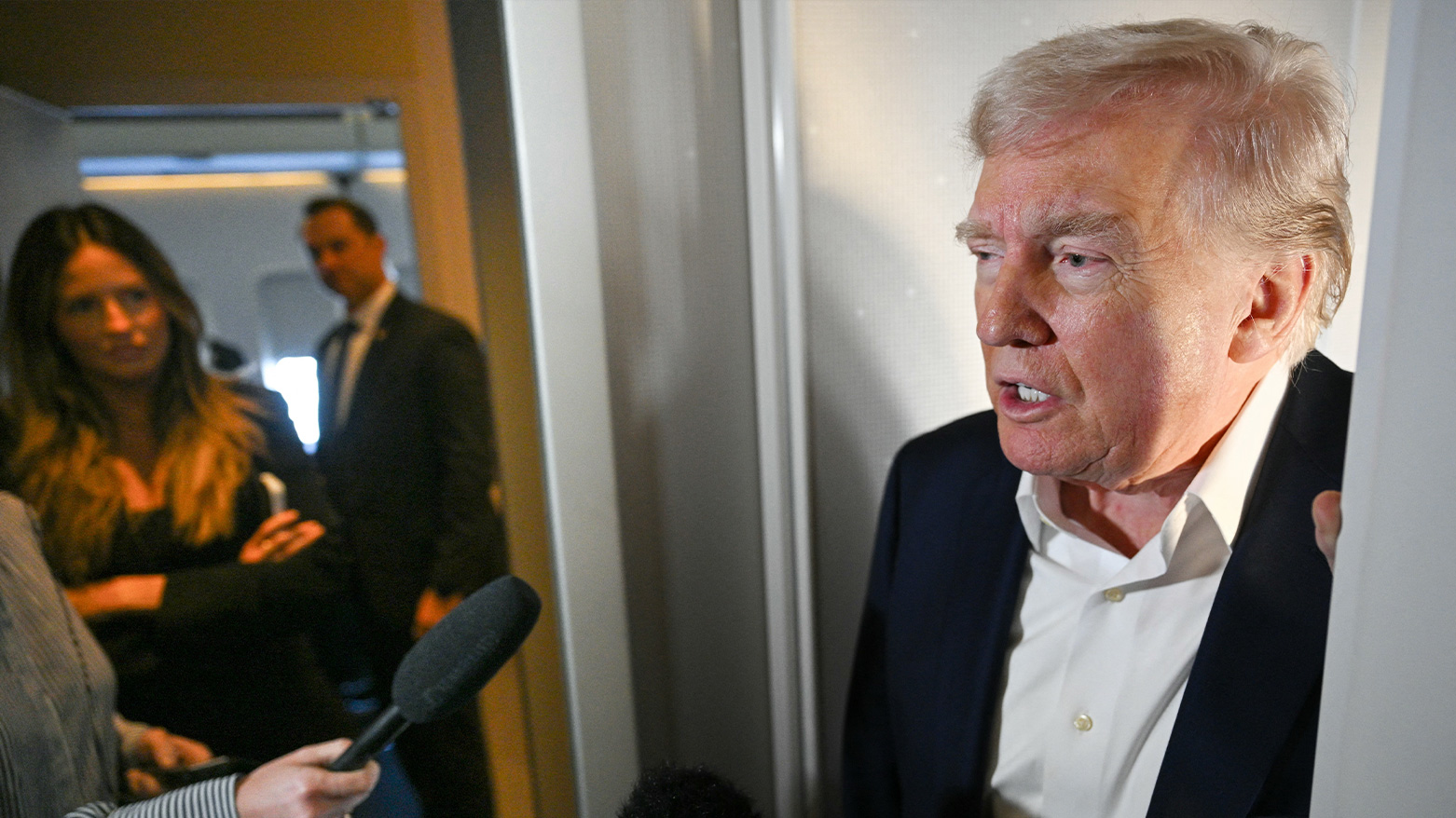Muscat Breakthrough? Trump Says Iran Talks ‘Going Okay’
“I think they’re going okay. Well, I can’t tell you because... nothing matters until you get it done. So I don’t like talking about it, but it’s going okay. The Iran situation is going pretty good. I think,” President Trump stated.

By Kamaran Aziz
ERBIL (Kurdistan24) – In what may signal the first serious thaw in U.S.-Iran relations in years, U.S. President Donald Trump has described the latest indirect talks between Washington and Tehran in Muscat, Oman as "going okay," suggesting cautious optimism over the potential revival of nuclear diplomacy between the two long-standing adversaries.
The first round of negotiations, held on Saturday, marked a pivotal moment in the shifting diplomatic landscape of the Middle East. Speaking aboard Air Force One later that evening, Trump remarked: “I think they’re going okay. Well, I can’t tell you because... nothing matters until you get it done. So I don’t like talking about it, but it’s going okay. The Iran situation is going pretty good. I think.” The White House later confirmed this sentiment, characterizing the Muscat discussions as “very positive and constructive,” and announced that further rounds are scheduled for the coming week.
According to the al-Monitor report, the indirect negotiations were mediated by Oman and featured Iranian Foreign Minister Abbas Araghchi and Steve Witkoff, President Trump’s Special Envoy for Middle Eastern Affairs. Sources cited by Reuters confirmed that the agenda focused strictly on Iran’s nuclear program, with proposals reportedly centering on limiting uranium enrichment in exchange for partial sanctions relief, de-escalation of regional tensions, and a potential prisoner exchange.
Iranian officials responded to the discussions with cautious hope. In a statement carried by IRNA, Foreign Minister Araghchi described the talks as an opportunity to reach a "fair and honorable" agreement. However, he underscored that success would depend on "the seriousness and goodwill" shown by the U.S. side. The Iranian Foreign Ministry has since confirmed that the next round of talks will be held the following week.
Reactions within Iran have been mixed. Outlets like IRINN (Islamic Republic News Network), closely aligned with revolutionary institutions, dismissed Trump’s comments as potentially manipulative and lacking credibility.
Still, prominent figures like Ali Shamkhani, senior advisor to the Supreme Leader, publicly backed the negotiations, declaring on X: “Iran’s FM heads to Oman with full authority for indirect talks with the US. Tehran seeks a real, just deal—away from media show and rhetoric. Key proposals are ready. If Washington shows determination for a deal, the path to agreement will be clear.”
Meanwhile, Ali Akbar Salehi, former head of the Atomic Energy Organization of Iran, welcomed the talks but cautioned that any U.S. military action would provoke “grave consequences.” On the other end of the political spectrum, several Friday prayer leaders and hardline clerics condemned the process as a replay of the “bitter JCPOA experience,” urging caution.
Even as it pursues diplomacy, Washington has not abandoned its pressure tactics. On the eve of the Muscat negotiations, the U.S. introduced new sanctions targeting Iran’s nuclear infrastructure, including the Atomic Energy Organization, according to The Wall Street Journal. Iranian officials criticized the move as counterproductive. A senior Iranian source told Reuters: “The U.S. cannot negotiate with one hand and sanction with the other. This contradiction must be resolved.”
Nonetheless, the diplomatic thaw seems to have generated economic optimism within Iran. The Tasnim News Agency reported a sharp decline in the dollar’s exchange rate, with the open-market value dropping to 980,000 rials and the official rate stabilizing near 680,000 rials. Gold and coin prices also fell, indicating a boost in market confidence.
The European Union has voiced strong support for the renewed talks. Josep Borrell, the EU’s foreign policy chief, called the negotiations “an important step toward a diplomatic resolution of Iran’s nuclear issue,” and reiterated that “diplomacy is the only sustainable solution for reducing tensions in the region.”
Despite these glimmers of progress, many obstacles remain. The political climates in both Tehran and Washington are marked by deep internal divisions, while regional rivalries and security concerns continue to cast a long shadow over diplomatic efforts.
Reflecting on the complex and contentious nature of the process, the conservative Iranian daily Javan painted the Oman talks as a strategic victory for Tehran. In its Sunday editorial titled “Oman Talks: Iran’s Display of Power Against U.S. Helplessness,” the newspaper argued that Iran had successfully dictated the terms of the negotiations — from the venue to the agenda — and that the absence of European intermediaries was a diplomatic win.
According to Javan, Iran’s goals include defending the nation against “unjust sanctions,” managing international public opinion, and denying the U.S. leverage for further pressure. The paper emphasized that regardless of the outcome, Iran had already demonstrated its strength and resilience.
The editorial outlined two likely outcomes: either a breakdown in talks, which would be framed as Iran’s refusal to capitulate, or a continuation of negotiations, which would suggest the U.S. had accepted Iran’s terms. Both paths, it argued, ultimately reinforce Iran’s position. However, the piece closed with a warning: “The only real danger is a miscalculation by the negotiating team, which must be prevented through full alertness.”
As Muscat prepares to host the second round of indirect talks, the world watches closely. Whether these cautiously hopeful negotiations evolve into a durable agreement remains uncertain — but for the first time in years, the door to nuclear diplomacy between Iran and the U.S. appears to be open once more.